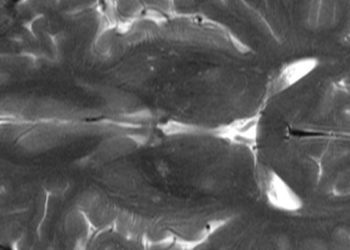Improving heat-shock protein levels shows efficacy against lysosomal storage diseases [PreClinical]
1. Treatment with recombinant heat-shock protein 70 (rHSP70) reduced lysosomal enlargement in cells isolated from patients with various lysosomal storage diseases (LSDs) such as Fabry disease (FD), Niemann-Pick disease A (NPDA), and Niemann-Pick disease C (NPC).
2. In mouse models of FD and NPC, administration of rHSP70 led to decreases in lipid accumulation in various vital organs and improved overall motor coordination.
Evidence Rating Level: 2 (Good)
Study Rundown: LSDs are a group of inherited metabolic diseases generally characterized by the inability to properly breakdown metabolites such as lipids and glycoproteins. Often, LSDs are associated with systemic organ malfunction and severe neurological impairments. In this work, a new approach for treating LSDs with rHSP70 was investigated using several disease models.
Fibroblast cells from patients with eight forms of LSDs (including FD, NPDA, and NPC) were cultured in vitro and treated with rHSP70. In all cases, exposure to rHSP70 led to significant reductions in cellular lysosome enlargement, suggesting that rHSP70 aids in diminishing the build-up of metabolites within lysosomes. Subsequently, rHSP70 treatment was tested in genetic mouse models of FD and NPC. In mice with FD, long-term treatment with rHSP70 led to diminished levels of globotriaosylceramide (Gb3), the specific lipid that accumulates in lysosomes of FD patients, in the kidneys and heart. Additionally, rHSP70-treated mice showed a significant reduction in several other types of lipids within their dorsal root ganglia. Similarly, in mice with NPC, rHSP70 substantially diminished lipid metabolite storage in the cerebrum. This reduction in lipid accretion was accompanied by improvements in ataxic gait and general physical activity. In separate experiments, NPC mice treated with the small molecule inducer of HSP70 arimoclomol also demonstrated reduction in lysosomal enlargement and improvement in neurological and behavioral symptoms.
Overall, this work provides promising evidence to support the development rHSP70-based therapeutics for clinical use in patients with LSDs. However, more thorough analyses of efficacy and ability to improve lifespan will be necessary, especially since many LSDs cause death at an early age.
Click to read the study in Science Translational Medicine
Relevant Reading: Treatment with arimoclomol, a coinducer of heat shock proteins, delays disease progression in ALS mice
In-Depth [animal study]: Fourteen patient-derived LSD fibroblast cell lines were treated with 300nM rHSP70 for 24 hours and evaluated for lysosomal enlargement. In every case, rHSP70 treatment led to a significant reduction in lysosomal area (p<0.05). This effect was attributed to rHSP70 activity specifically, as treatment with other related proteins such as rHSP90 and rHSP27 led to no changes in lysosomal enlargement when compared to the control treatment group.
To model FD, mice were genetically modified to no longer express the gene Gla, which normally drives expression of an enzyme responsible for the metabolism of Gb3. When treated with 5 mg/kg doses of rHSP70 3 times/week for 10 weeks, rHSP70-treated Gla-/- mice (n=8) had significantly reduced levels of Gb3 (p<0.05) in the kidney and heart. Examination of their dorsal root ganglia also showed drops in accumulation of various other lipid molecules such as isoglobotriosylceramide.
To evaluate the efficacy of rHSP70 against NPC, NPC-/- mice were dosed with 3 mg/kg rHSP70 via intraperitoneal injection, three times a week for a total of 33 days. Similar to the FD mice, NPC mice responded with decreases in lipid accumulation in the cerebrum and kidney. To determine whether alleviating NPC pathology in the cerebrum resulted in better motor function, mice were evaluated for their ataxic gait phenotype. Treatment with rHSP70 led to significantly faster step cycle times and greater foot print intensity, which both suggest improvements in coordination and function of the nervous system. Finally, NPC mice that were treated daily with 10 mg/kg or 30 mg/kg arimoclomol for 4 weeks also demonstrated improved step cycle times and showed corrected gait movements of the front and hind limbs.
Image: PD
©2016 2 Minute Medicine, Inc. All rights reserved. No works may be reproduced without expressed written consent from 2 Minute Medicine, Inc. Inquire about licensing here. No article should be construed as medical advice and is not intended as such by the authors or by 2 Minute Medicine, Inc.






